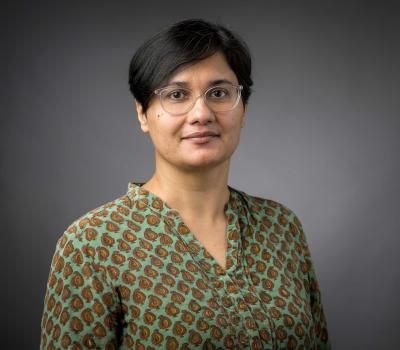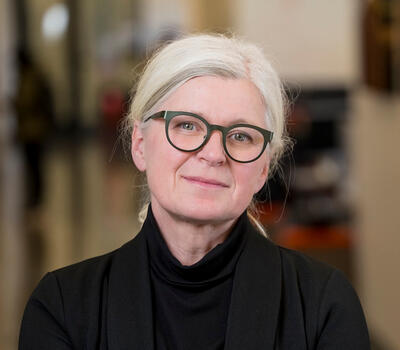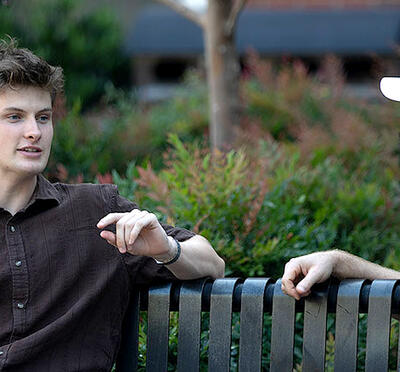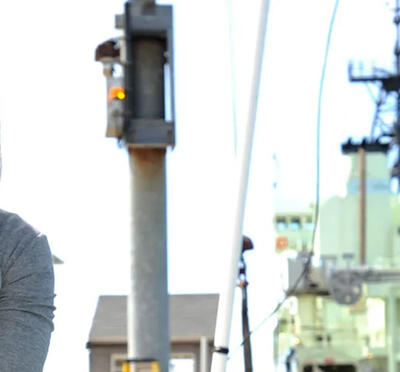The College of Engineering at Oregon State University is poised to strengthen its already substantial efforts in ensuring communities in Oregon and beyond have access to clean water, thanks to two new faculty appointments made possible by support from the college’s wider community.

First is the appointment of Dorthe Wildenschild as the Jon and Stephanie DeVaan Chair and Executive Director for Clean Water Initiatives. This position builds on the efforts of the Clean and Sustainable Water Technology Initiative, launched with investment from Jon and Stephanie DeVaan in 2018.
“Investing in clean water is a hopeful effort for humanity’s future. We believe Oregon State is a leader in solving clean water problems for the world,” Jon DeVaan said. “We are excited to see Dr. Wildenschild appointed to be the executive director as her unique combination of research, collaborative, and administrative skills will lead Oregon State’s efforts to the next level of effectiveness and prominence.”
Wildenschild’s experiences as an educator, collaborator, and leader make her the ideal incumbent for this position. As a researcher, Wildenschild, who is a Henry Darcy Distinguished Lecturer in Groundwater Science, focuses on flow and transport in porous media to answer questions about subsurface water pollution and energy-related storage challenges. Her recent work includes investigations in support of more effective groundwater remediation techniques, including a better understanding of how bacterial biofilms can help us clean groundwater.
“I am thrilled to lead the future efforts of the Clean Water Initiative, efforts that will be facilitated by generous financial support from the DeVaans,” Wildenschild said. “Our shared vision is to raise the profile of clean water research at Oregon State — aligning with clean water’s importance to the university’s new strategic plan — thereby increasing the impact we can have on the world. Access to clean water and sanitation is a basic human right, and both our college and the wider Oregon State water community have the tools, expertise, and resources to make a difference. I look forward to being part of the journey.”

Second is the appointment of Meghna Babbar-Sebens as the Evans Family Professor in Clean Water. Richard and Gretchen Evans have long been interested in improving lives through engineering and science. With a successful 2015 investment in one of the few endowed professorships in humanitarian engineering nationwide, Richard and Gretchen are now supporting the development of clean water solutions here and abroad through this position.
“Growing up in rural Western Oregon in the 1960s, Gretchen and I never thought about clean water as a scarce commodity,” Richard Evans said. “However, after traveling and working in Africa, India, Europe, South America — and even California — for five decades, we have come to appreciate that it is an increasingly scarce and precious resource — one with immense health and economic consequences. In the United States, we seem to be better at responding heroically to catastrophes such as fires, floods, and earthquakes than we are at dealing with longer-term structural issues like water availability. We are delighted to support someone of Meghna’s expertise and commitment to build the needed knowledge base in this critical area.”
Babbar-Sebens’s vision of systems-based water solutions is exactly the kind of work the Evans family wishes to support. Her research interests include hydroinformatics, which employs simulation modeling, information, and communication technologies to solve problems in hydraulics, hydrology, and environmental engineering. Her lab’s multidisciplinary project on the re-naturalization of degraded watersheds includes web-based tools to help stakeholders visualize possible solutions for watershed problems and select the best way forward.
"This generous, opportune investment by the Evans family will facilitate critical research needed on nature-based management solutions for increasing community resilience to floods, water quality stresses, and a changing climate," Babbar-Sebens said. "It will also help engage students in research on how to design and implement solutions that leverage natural features and processes to meet the diverse social and environmental needs in different types of watershed communities across the world."
As the Jon and Stephanie DeVaan Chair and Executive Director for Clean Water Initiatives, Wildenschild will guide the development and growth of clean water technology efforts within the College of Engineering and collaboratively across the university, through partnerships with the colleges of Agricultural Sciences; Earth, Ocean, and Atmospheric Sciences; Forestry; Liberal Arts; and Science.
As Evans Family Professor in Clean Water, Babbar-Sebens will continue to work and partner across disciplines to find practical and data-driven solutions for communities. With these appointments, the university will continue to be widely recognized for its integrative and interdisciplinary activities in water resources.
“I am so grateful for the support of Jon and Stephanie DeVaan and the Evans family,” said Scott Ashford, Kearney Dean of Engineering at Oregon State University. “Their investment in the College of Engineering will bolster and build upon the efforts of over 150 faculty across Oregon State University working on clean water solutions. Collaborative research and education to solve big challenges is a strength of Oregon State and a key pathway to ignite prosperity across Oregon and beyond.”





